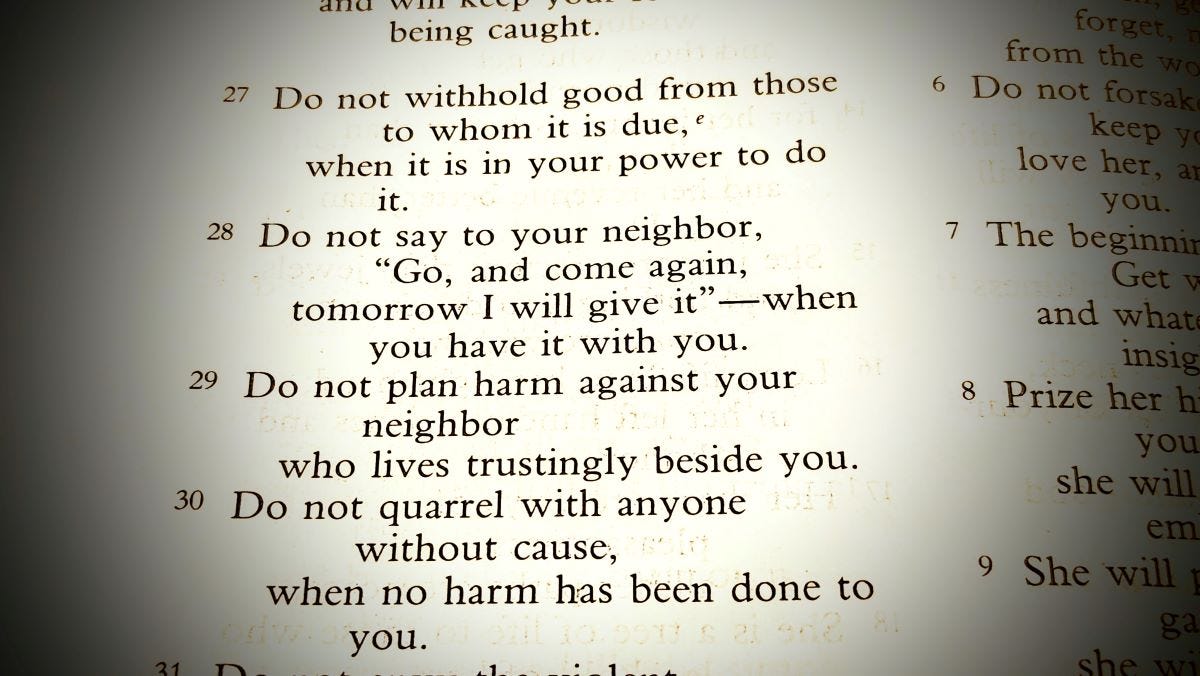History is like jazz
On the relevance of Proverbs, the material conditions of modern life, and the need to read history for what it is
Human history is like jazz: It'll never sound exactly the same way twice, but you're never really hearing it for the first time. There will always be particular details that are novel or original about an event, but the themes are really unfailingly familiar. That's because humans today are overwhelmingly the same as humans yesterday. On the whole, we're better-fed and face fewer challenges to our physical welfare than our predecessors -- and that contributes favorably to our collective decision-making.
■ But those are marginal differences, not changes to the fundamental stuff of human nature. To reach for an ancient recorded example, the contents of the Book of Proverbs are more than 2,000 years old, yet easy modern parallels can be found to its complaints about lazy children, protests against dishonest business practices, and warnings about liars.
■ This doesn't mean that all of the answers to our problems are hidden in old history books. But if the virtues and vices, motivations and limitations on us are all roughly the same as they've ever been, then it's mostly a matter of learning to recognize the fundamental patterns underlying the (metaphorical) tempo and key changes. In the words of Jeffery Tyler Syck: "The weirdest thing about studying history is that you realize that things never really change but they are also never really the same."



